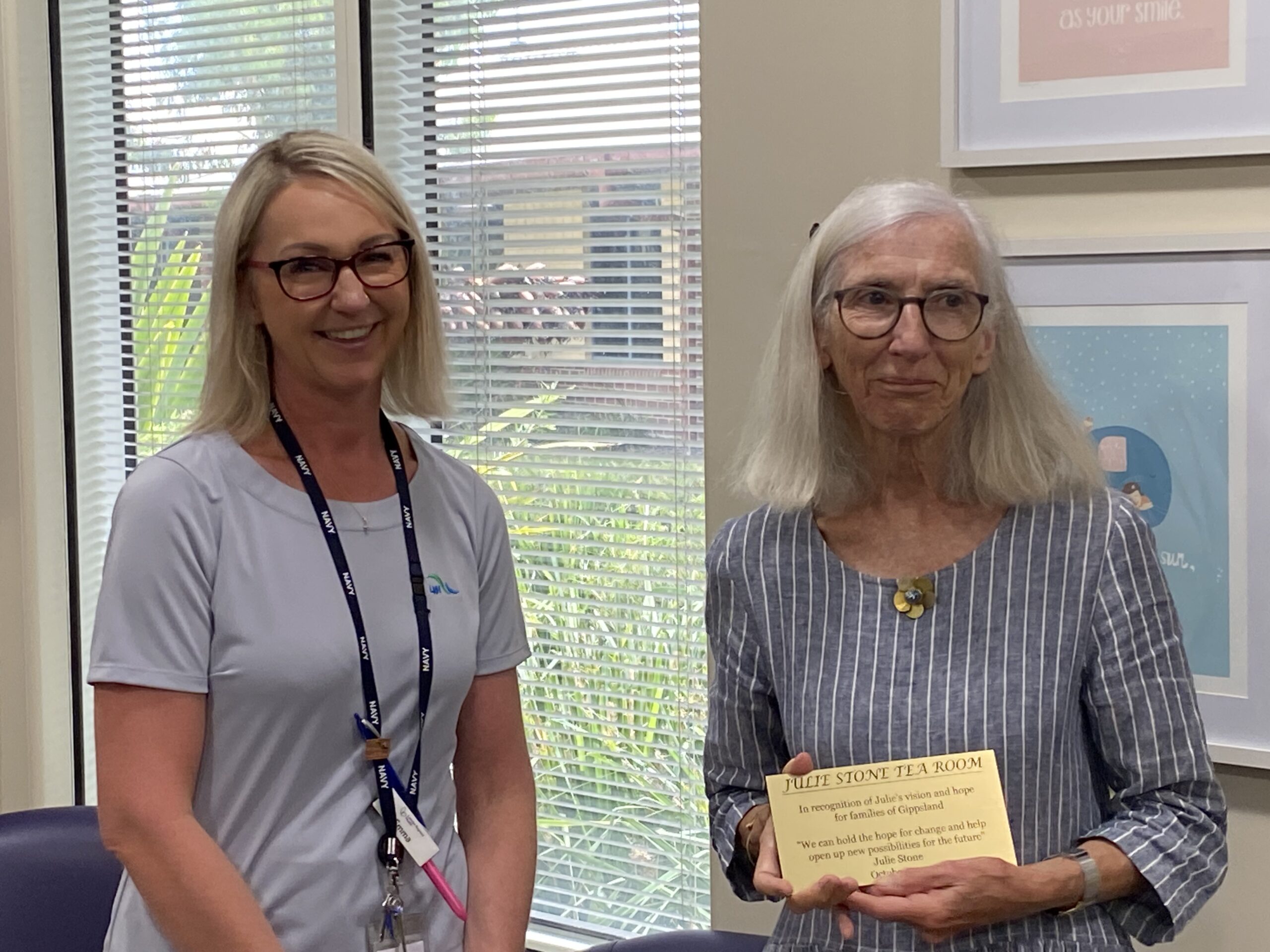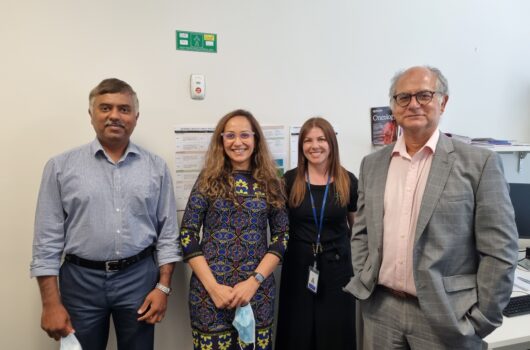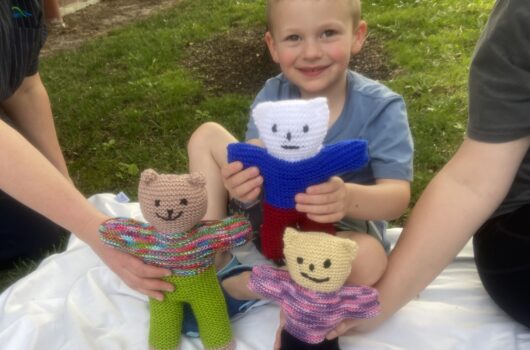Agnes Unit acknowledges founding psychiatrist

“The evidence is incontrovertible. What happens in early childhood, affects the development of that child forever.” Dr Julie Stone, Child Psychiatrist and founder of Agnes Unit LRH.
It’s hard not be drawn in when Julie Stone speaks about her life’s work and the establishment of regional Victoria’s first mother and baby mental health unit, Latrobe Regional Health’s (LRH) Agnes Unit which opened in 2014.
The team at Agnes provide care for mothers experiencing mental health challenges as they get used to the idea and expectations of being a mum.
“When you think about all the things that can impact on a pregnancy and the early weeks and months of the child’s life: timing of the pregnancy, sometimes the relationship isn’t in great shape, the pregnancy may not have been a smooth one for the mother, sometimes the pregnancy may not have been consensual, sometimes money is tight. There are many, many factors that can prevent a new mother from bonding, enjoying and nurturing that new born, and that can have lifelong implications for the child,” Dr Stone said.
The pace and feel of the unit are quite different from other parts of LRH. Those not familiar with the work of the Agnes team might form the view that all they do is play with babies and wonder how that fits in with mental health nursing.
“I still hear that from colleagues,” Nurse Unit Manager Emma Vivien said. “All you do is play with babies all day!”
However, the unit’s philosophy is that nursing staff can learn from the baby’s behaviour and presentation and incorporate these observations into helping the new mother grow into her role.
“We’re actually working, not just playing with babies. The baby sometimes tells the story about what’s going on much more than the mothers are able to do. We’ve had lots of examples where playing and observing the baby has allowed us to open up discussion with the mum about what’s going on for them and help the mother move forward,” Emma said.
Underpinning all of the work at Agnes is its ‘Thinking Framework,’ a philosophy that guides the staff on their interactions with the mothers and babies.
Consisting of such things as the importance of thoughtful and respectful relationships between staff, mother and baby, developing mindfulness around being a parent in the mother and a commitment to understanding both the mothers as well as the baby’s behaviours, Emma Vivian describes it as ‘the heart’ of the work she and her team do.
One special aspect of the work at Agnes is the insistence of reflective practice where the team sit together once a week and discuss the challenges that the work can bring up and how that impacts their ability to work with the mothers and babies on the unit.
“This can be emotionally challenging work,” Emma said. “We’ve had staff ranging from nursing and medical students to more experienced staff who have been triggered by their interactions with some of the mums and hearing some of their life history and had to withdraw for a period of time to develop strategies and get themselves more comfortable and confident when working with particular patients.
“The sessions that we hold each week give permission for all of us to acknowledge the challenges of the work, air it with colleagues and gain assistance from them in how to work with that challenge,” Emma said.
Now retired, Dr Julie Stone reflects on her career and how the Agnes Unit has continued to grow as new staff have come on board over the years.
“I’m thrilled to bits that I was here at the beginning but I also think there has been a thoughtful evolution as staff have come on board, made the roles their own but acknowledged that this place has some history and that history is one where mothers and babies have been cared for, made better and made strong enough to go back home and be the best mother they can be and give that child the best start possible in their lives.”






